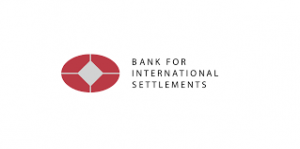 Policymakers can maintain the current economic upswing beyond the short term by tackling structural reforms, rebuilding monetary and fiscal policy space to react to future threats and encouraging prompt implementation of regulatory reforms, the Bank for International Settlements (BIS) writes in its Annual Economic Report.
Policymakers can maintain the current economic upswing beyond the short term by tackling structural reforms, rebuilding monetary and fiscal policy space to react to future threats and encouraging prompt implementation of regulatory reforms, the Bank for International Settlements (BIS) writes in its Annual Economic Report.
In its flagship economic report, the BIS describes how the global economy is coming off a vintage year for growth with low inflation – unusual so late in the expansion. The gains are in no small measure the fruit of a decade of extraordinary monetary policies, but these have also contributed to vulnerabilities. Although the path to sustainable growth underpinned by price and financial stability is quite narrow, the right policy mix can help fend off material risks to the outlook.
“We must seize the day,” says BIS General Manager Agustín Carstens. “Addressing vulnerabilities is key to keeping the growth momentum on track. The stronger performance gives us a window to pursue necessary reforms and recalibrate policies. Let’s not miss this opportunity.”
An escalation of protectionist measures or a sudden jump in historically low bond yields in core sovereign markets could trigger a fresh downturn. Political upheavals or disappointing profits could dent investors’ appetite for risk, shaking overstretched financial markets, says the Report, launched on Sunday under a new title.
These risks come against a backdrop of rising private and public debt globally and tighter links between financial and business cycles, which can amplify expansions and contractions. The latter are characterised by high debt service burdens, deleveraging and falling asset prices.
Although the specific policy mix will vary across jurisdictions, rebuilding room for policy manoeuvre requires taking a longer-term view of the challenges ahead. Consolidating public finances is a priority. It is essential to continue normalising monetary policy with a steady hand while being mindful of risks. It is important to deploy macroprudential measures where financial vulnerabilities are building up. Making labour and product markets more flexible and implementing post-crisis financial regulatory reforms are also key to securing long-term growth.
The Report assesses the state of the financial industry. Most banks have strengthened their balance sheets and adjusted to the newly finalised Basel III requirements. Yet improvements are not uniform and some countries’ banks are not fully healed, calling for further action. The Report also highlights the greater share of credit now channelled through non-banks, such as asset managers. This can make market reactions harder to anticipate.
Two special chapters, on macroprudential frameworks and cryptocurrencies, were released on 17 June.
The BIS’s financial results, published at the same time in the Annual Report 2017/18, include a balance sheet total of SDR 256.5 billion (USD 373.0 billion) at end-March 2018 and a net profit of SDR 508.1 million (USD 738.8 million).












